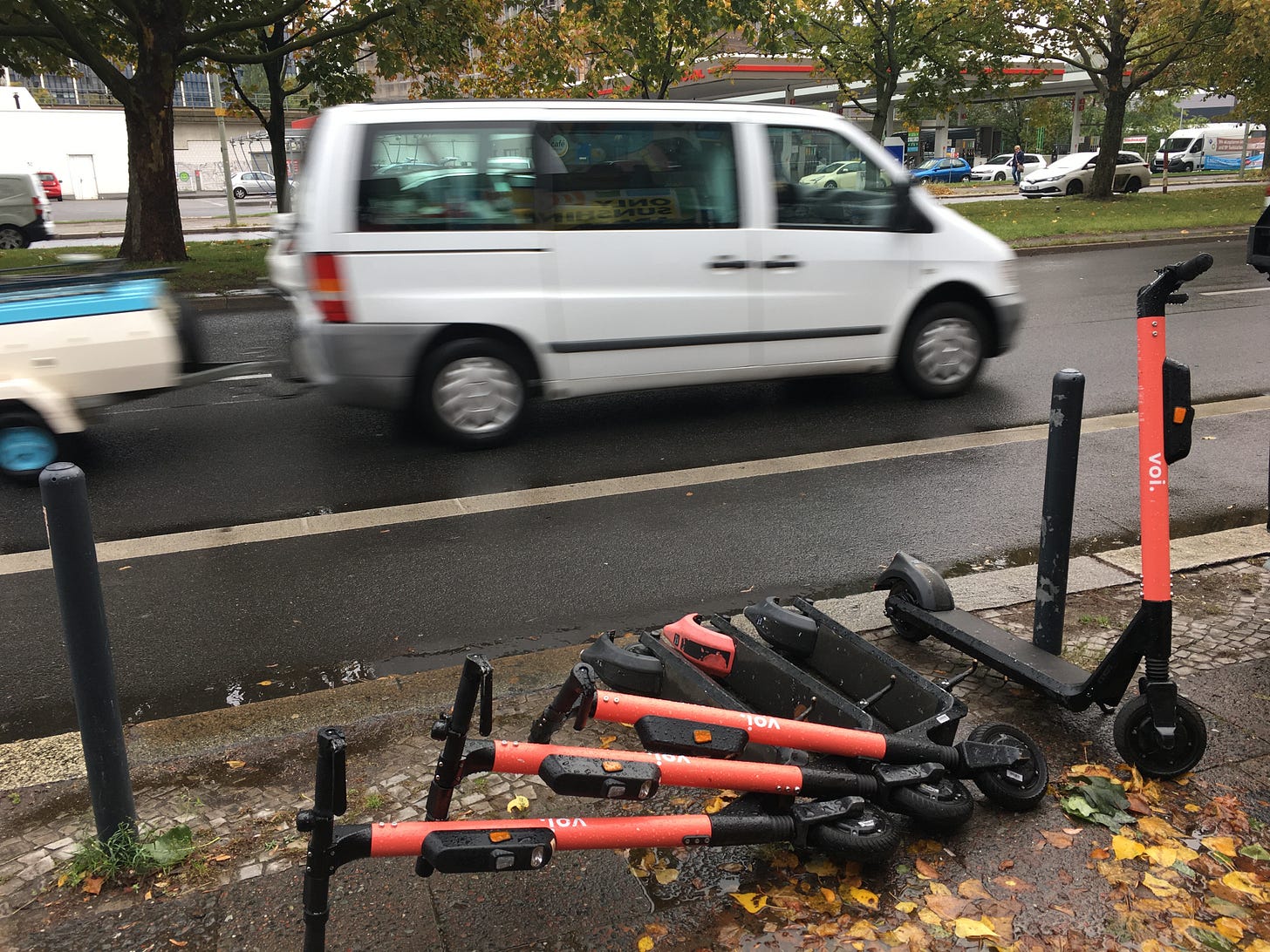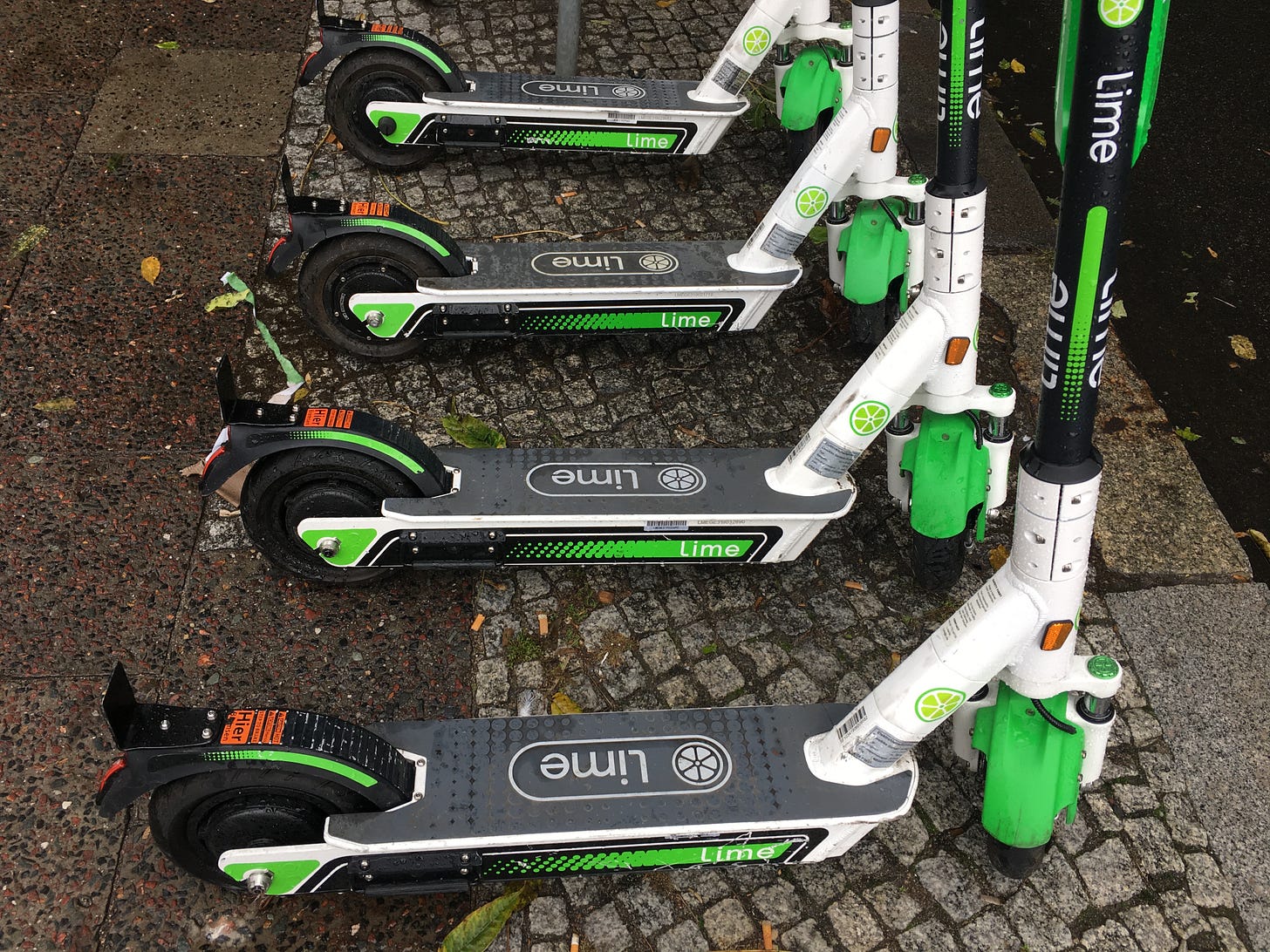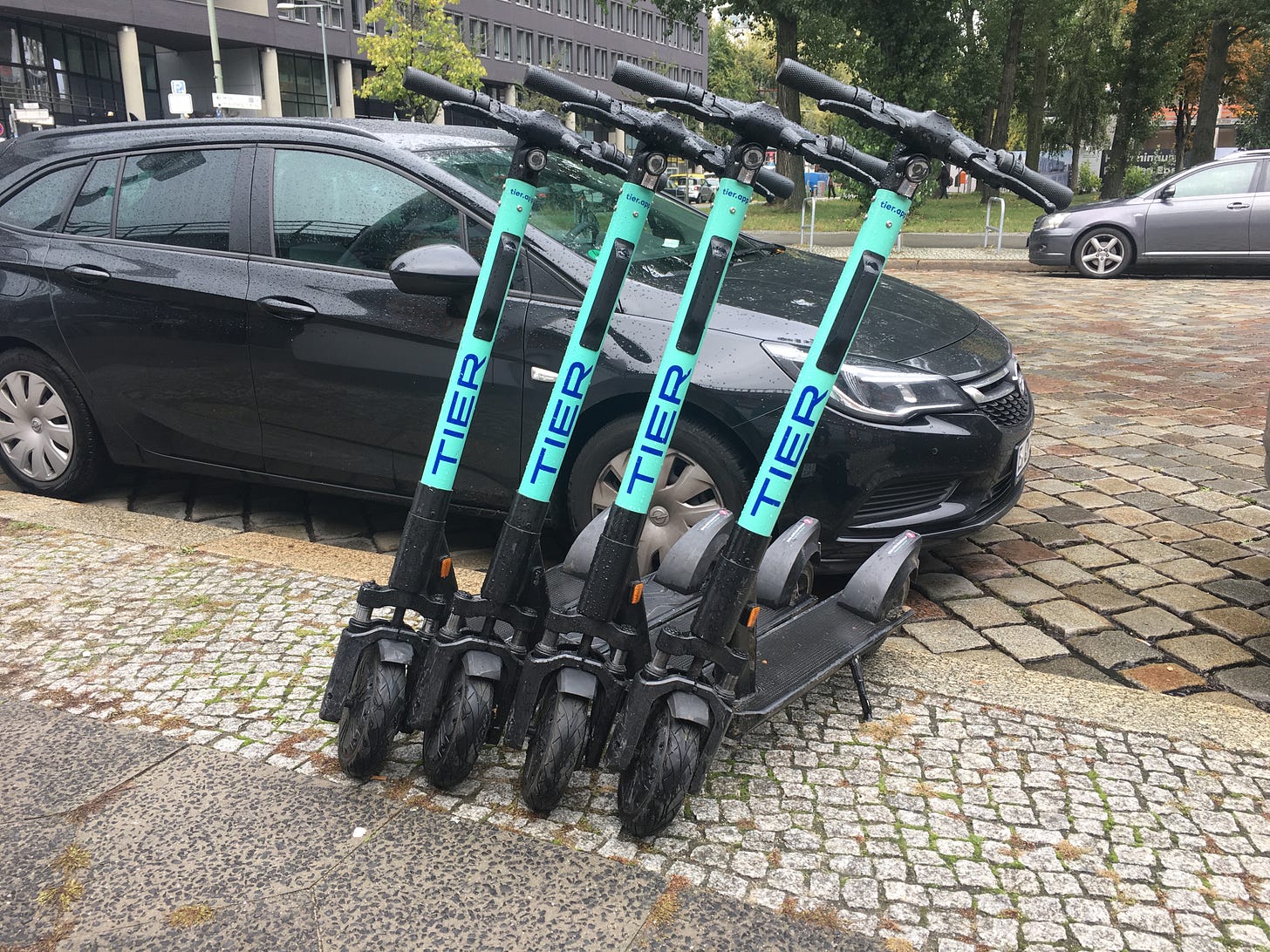Hello and welcome to Oversharing, a newsletter about the proverbial sharing economy. If you’re returning from last week, thanks! If you’re new, nice to have you! (Over)share the love and tell your friends to sign up here.
IPOs.
Unicorns have lost their luster. As of yesterday, Uber was down 35% from its IPO price, Lyft down 47%, Jumia down 48%, and Peloton down 17%. WeWork, unable to sell the public on the energy of We, yanked its IPO, pushed out its CEO, put his jet up for sale, is offloading its side businesses, and plans to lay off hundreds to thousands of workers. Postmates, a food-delivery unicorn, delayed the IPO it had planned to kick off in September, telling TechCrunch at a recent conference that the markets “are a little choppy when it comes to growth companies specifically.”
Silicon Valley wants someone to blame. SoftBank, the Japanese conglomerate that pumped more than $10 billion into WeWork and also took a hefty stake in Uber, is a popular target. So are the public markets, investment banks (JPMorgan told WeWork the company could be worth $46 billion to $63 billion; Goldman Sachs and Morgan Stanley pitched Uber $120 billion), and the IPO process itself. Earlier this month, venture capitalists convened in Silicon Valley to discuss alternatives to the IPO, like direct listings that can be priced and underwritten by algorithms. Investment bankers were largely uninvited.
Less discussed has been that blame might lie with Silicon Valley itself. Many of the investors pointing the finger at SoftBank, for instance, backed the same founders, participated in the same funding rounds, and looked the other way at early signs of misconduct. Private investors ready to ditch the IPO also don’t seem terribly interested in talking about how the companies that have tanked in the public markets overwhelmingly lose lots of money. Silicon Valley is the victim of its own narrative, rather than a culpable actor in it.
The same logic was on display in how Postmates framed its decision to delay the IPO it filed confidentially for in February. CEO Bastian Lehmann told TechCrunch that whether the company might still list in 2019 “depends more on the macro than it depends on our readiness.” But he declined to answer a question about when Postmates might be profitable, saying, “We internally believe that profitability is a managed outcome.” (Postmates has promised to turn a profit in 2016, 2017, and 2018.)
In a rare display of public humility, SoftBank CEO Masayoshi Son reportedly told Nikkei Business magazine he was “embarrassed and flustered” by his track record. SoftBank is struggling to find investors to back a second massive tech fund (the Vision Fund 2) after the debacle with WeWork and underperformance of its sizable Uber bet. The sole large commitment to the new fund, which aims to raise $108 billion, is $38 billion pledged by SoftBank Group itself. But even Son has been chastened only so much. “Companies like WeWork and Uber are criticized for being in the red, but in 10 years they’ll be making substantial profits,” he said.
We used to work.
How are We doing these days, anyway?
WeWork puts three businesses up for sale (The Information)
WeWork’s parent paid with stock for some acquisitions, and investors in those startups aren’t happy (Wall Street Journal)
WeWork is putting Adam Neumann’s $60 million jet up for sale (Business Insider)
WeWork was a family affair, until things got complicated (Bloomberg)
WeWork puts two more businesses up for sale (The Information)
Fitch downgrades WeWork after aborted IPO leaves financing hole (Reuters)
Short sellers pile into WeWork debt (Financial Times)
WeWork bosses tell employees job cuts are coming this month (Bloomberg)
Adam Neumann renegotiating terms on $500 million line of credit (BI)
WeWork plans to shed one-third of technology employees (The Information)
There is a lot of good reading on WeWork, but if you can only get to one I recommend this postmortem from Reeves Wiedeman at New York magazine (and the profile of We he wrote a couple months earlier). It reveals, among other things, that Adam Neumann doesn’t know the difference between Toronto and Montreal, that newly appointed co-CEO Artie Minson has a delightfully dry sense of humor, and that the photo of Neumann wandering shoeless around Gramercy Park was actually taken before his ouster, though its poster originally claimed to have spotted him that morning. (“Adam grew up on a kibbutz and likes to walk barefoot,” an unnamed spokesperson told New York mag, of the photo. “He is a kibbutznik. Should we ask him to stop?”)
Fare play.
The ride-hail minimum wage is gaining momentum, with Los Angeles city council president Herb Wesson proposing this week that Uber and Lyft drivers earn at least $30 an hour:
"The flexibility that a ridesharing gig provides should not serve as an excuse for short-changing these drivers," Wesson said. "Earning less than $10 per hour in Los Angeles simply won't cut it. If these companies want to operate in Los Angeles, they need to compensate their workers fairly."
Wesson's proposal would require the companies to pay drivers a $15 an hour wage, along with $15 an hour for operating expenses like gas, insurance and basic wear-and-tear on a driver's vehicle.
New York City was the first to pass a wage floor for ride-hail drivers, who as independent contractors aren’t protected by local, state, or federal wage laws. In New York, drivers earn a minimum of $17.22 an hour, a figure designed to represent the local $15 hourly minimum plus expense reimbursement. Seattle is considering a similar plan, with mayor Jenny Durkan recently calling for Uber and Lyft drivers to earn the $16 local hourly minimum plus a to-be-determined allowance for benefits and expenses by July 2020.
Wesson’s proposal so far lacks the rigor of New York’s model, which was developed by economists James Parrott and Michael Reich. Los Angeles is a different city with different considerations, but $15 an hour for operating expenses feels like a large and suspiciously round number. New York’s $17.22 figure, by contrast, is based on a formula for paying drivers that builds in expense reimbursement and adjusts by utilization, or the share of every hour that a driver is working rather than waiting for a fare. By accounting for utilization, the formula imposes a natural cap on the number of drivers companies like Uber put on the road. Oversupplying drivers lowers the utilization rate, which, per the formula, increases the wage cost to the company.
Scooters!
I was at Micromobility Europe in Berlin last week and as expected scooters were everywhere:



My panel was “Capital in Micromobility,” a fancy way for saying investment in light, often electric, vehicles like bikes, scooters, and skateboards. We talked about if the scooter space is overvalued (“I think there was too much capital too early in the space,” said Martin Mignot, a partner at Index Ventures, which has invested in Bird) and whether there’s such a thing as too much capital for a company (“Too much money actually is probably what kills companies,” said Kevin Talbot, managing partner at Relay Ventures, another Bird investor. “Constrained capital provides discipline to the team”). A few days later, Bird raised $275 million at a $2.5 billion valuation and Berlin-based Tier Mobility announced $60 million in funding at an undisclosed valuation.
Meanwhile, over in Munich, hundreds of people reportedly lost their driver’s licenses after riding electric scooters while drunk at Oktoberfest. E-scooters, which were legalized in Germany in June, are classified as motorized vehicles, meaning rules about operating under the influence apply to scooter riders. Of 414 people caught riding an e-scooter under the influence, 254 lost their licenses, according to police.
This time last year.
Waymo's self-driving car operator fell asleep at the wheel
Other stuff.
Morgan Stanley, Goldman Sachs to lead 2020 Airbnb listing. Waymo testing driverless cars in Los Angeles. Fully driverless Waymo cars coming to Phoenix suburbs. Austin delivery startup Fetch raises $10.5 million. Uber CEO says business is ‘absolutely sustainable.’ Driver working 60-hour weeks for Uber is still homeless. Car2Go exiting five North American cities. Google pushing its own vacation rentals business in search. ‘How much is your privacy worth’ is the wrong question. Naspers CEO on SoftBank comparisons. Airbnb paid less than £400,000 in UK tax on £300 million in sales in 2018. LAX to ban Uber, Lyft, and taxi curbside pickups. DoorDash driver dies after being shot while on delivery. DoorDash sued over massive data breach. Instacart shakes off loss of Whole Foods. Oyo raises $1.5 billion at $10 billion valuation. Uber warns tax hikes could wreck UK business. PayPal writes down $228 million on investments thanks to Uber. Insurer James River cuts ties with Uber’s commercial auto business. Lyft adds driver rewards. Milton Keynes wants scooters. Sting Operations Help Startups Crack Down on Stolen Scooters. Florida man who hates electric scooters cuts brakes on 140 of them. The $1 billion fund that wasn’t what it seemed. Everything Is Private Equity Now. Dear Instacart Customers. A British Person Explains the WAG Wars.
Thanks again for subscribing to Oversharing! If you, in the spirit of the sharing economy, would like to share this newsletter with a friend, you can forward it or suggest they sign up here.
Send tips, comments, and kibbutzniks to @alisongriswold on Twitter, or oversharingstuff@gmail.com.

